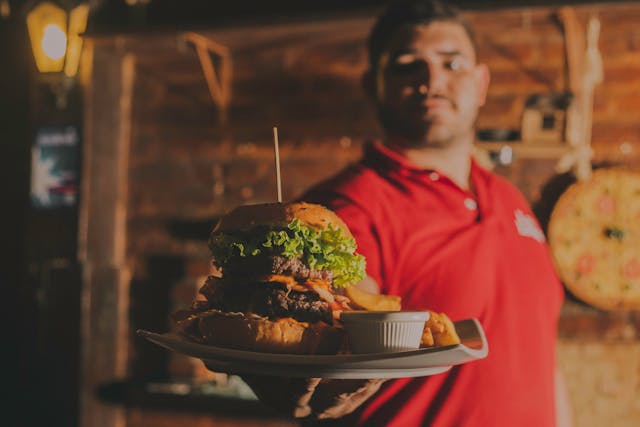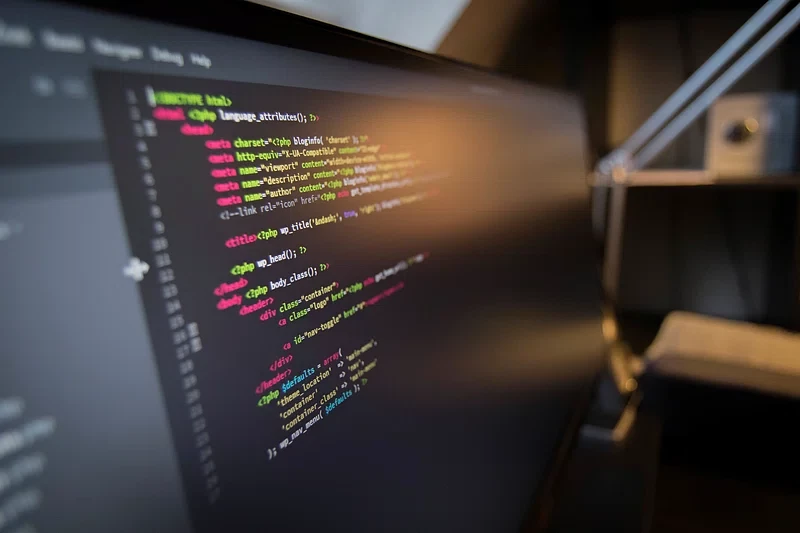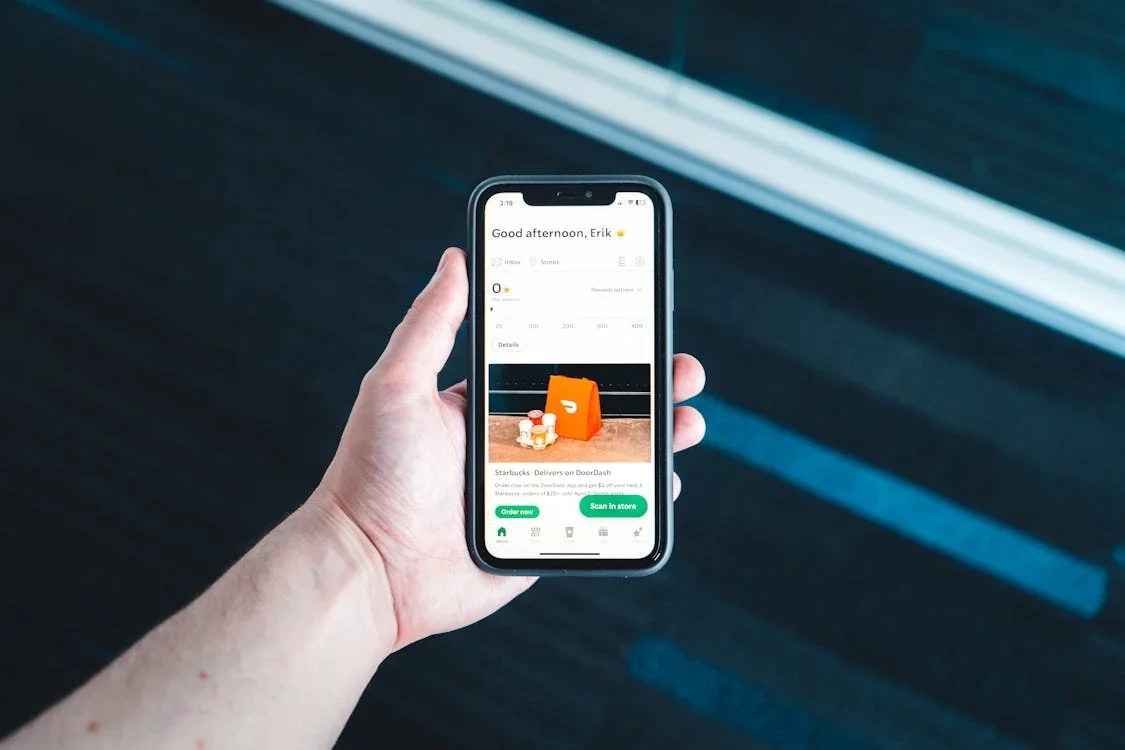Local News
Navigating Legal and Compliance Issues in Food Delivery App Development
Published
11 months agoon

Introduction to Food Delivery App Development
In recent years, the food delivery app industry has witnessed explosive growth, fueled by the increasing demand for convenient dining options and the rise of digital technology. As developers embark on creating these apps, they must navigate a complex landscape of legal and compliance issues that can significantly impact their success, especially if they are part of a larger company. From food safety regulations to data protection laws, the framework governing food delivery services is multifaceted and ever-evolving.
Understanding the legal requirements is crucial — not just for compliance, but also for building trust with users and partners. This includes ensuring that the app adheres to local health and safety codes, which vary widely by region, and implementing robust measures to protect user data in accordance with regulations like the General Data Protection Regulation (GDPR) or the California Consumer Privacy Act (CCPA).
Moreover, developers should be aware of labor laws affecting delivery personnel, including wage regulations and workers’ rights. By proactively addressing these legal considerations during the development phase, businesses can avoid costly penalties and foster a positive reputation in a competitive market. This groundwork not only paves the way for operational success but also elevates the overall user experience, setting the stage for long-term sustainability in the food delivery sector.
Understanding Legal Frameworks in the Food Industry

When venturing into the food delivery app development space, understanding the intricate legal frameworks governing the food industry is crucial. The landscape is not just about technology; it intertwines with health regulations, consumer protection laws, and food safety standards.
Firstly, compliance with the Food and Drug Administration (FDA) regulations is paramount. This includes ensuring that all food items are sourced from licensed vendors and that their handling and delivery meet stringent safety guidelines. Additionally, local health departments often impose their own regulations, which can vary significantly depending on the state or city.
Moreover, intellectual property laws must be navigated carefully. Protecting your app’s branding and features through trademarks and patents can safeguard against imitation by competitors.
Consumer privacy laws, such as the General Data Protection Regulation (GDPR) in Europe and various state laws in the U.S., require that personal data is handled with utmost care. Transparent data practices not only build trust but also shield against potential legal repercussions.
In essence, a thorough understanding of these legal frameworks ensures that your food delivery app is not only innovative but also compliant, fostering a sustainable business model in a competitive market.
Key Compliance Regulations for Food Delivery Apps
When developing a food delivery app, compliance with various regulations is paramount to ensure both legal integrity and consumer trust. First and foremost, understanding food safety regulations is crucial. Food delivery services must adhere to guidelines set by the U.S. Food and Drug Administration (FDA) and local health departments, ensuring that food is stored, handled, and transported safely to avoid contamination.
Additionally, data privacy laws, such as the General Data Protection Regulation (GDPR) in Europe and the California Consumer Privacy Act (CCPA) in the U.S., play a significant role. These regulations mandate how personal data, including user information and payment details, should be collected, stored, and shared. Implementing robust data protection measures is not just a legal requirement but also vital for building customer trust.
Moreover, businesses must navigate labor laws and gig economy regulations, particularly in jurisdictions where drivers are classified as employees or independent contractors. Compliance with wage and hour laws, along with ensuring fair treatment of delivery personnel, cannot be overlooked.
Lastly, intellectual property laws protect your app’s branding and technology, ensuring your innovations are safeguarded against infringement. By prioritizing these compliance areas, food delivery app developers can mitigate risks and foster a sustainable business model.
Data Privacy and Security Considerations

In the rapidly evolving landscape of food delivery app development, data privacy and security considerations are paramount. As these platforms handle vast amounts of sensitive information, including personal addresses, payment details, and customer preferences, developers must prioritize robust data protection measures.
Compliance with regulations such as the General Data Protection Regulation (GDPR) and the California Consumer Privacy Act (CCPA) is crucial. These laws mandate transparency in data collection practices, requiring apps to inform users about what data is collected, how it’s used, and the option to opt-out. Implementing end-to-end encryption for data transmission is essential to safeguard against breaches, while secure payment gateways can minimize the risk of financial fraud.
Additionally, conducting regular security audits and vulnerability assessments can help identify potential weaknesses in the app’s architecture. Educating users about best practices for password management and data sharing can further enhance security. As the food delivery sector becomes increasingly competitive, prioritizing data privacy not only builds trust with customers but also mitigates the risk of legal repercussions, positioning your app as a responsible player in the market. In a world where data breaches can tarnish reputations, a proactive approach to privacy and security is not just a compliance issue — it’s a business imperative.
Navigating Labor Laws and Employment Issues
As food delivery apps continue to surge in popularity, navigating labor laws and employment issues becomes crucial for developers and entrepreneurs alike. One of the primary challenges is determining the classification of delivery personnel — whether they are independent contractors or employees. Misclassification can lead to significant legal repercussions, including back pay and fines.
Moreover, many jurisdictions have enacted laws that provide specific protections and benefits for gig economy workers, such as minimum wage requirements, paid sick leave, and workers’ compensation. Developers must stay abreast of these regulations to ensure compliance and avoid costly litigation.
It’s also essential to foster a transparent working environment that respects the rights of all workers. Clear communication about pay structures, workload expectations, and any potential for tips can help mitigate misunderstandings.
Additionally, implementing robust onboarding processes and training programs can further safeguard against legal pitfalls by educating delivery personnel about their rights and responsibilities. Ultimately, navigating labor laws involves a proactive approach, ensuring that all aspects of the app align with current regulations while promoting a fair and equitable workplace for all involved.
Licensing and Permits for Food Delivery Services
When developing a food delivery app, understanding the landscape of licensing and permits is crucial for compliance and operational success. Each region may have distinct requirements, so it’s essential to conduct thorough research based on where your service will operate.
First, food delivery services typically require a business license, which legitimizes your operation. Depending on the jurisdiction, you may also need a food handler’s permit, ensuring that your team adheres to health and safety standards during the food preparation and transportation process.
Additionally, permits related to food storage and sanitation can be necessary, particularly if your app partners with local restaurants that are not fully equipped to comply with health regulations. Consider whether your app will also require a transportation license, especially if you plan to use your own delivery personnel rather than relying on contractors.
Finally, it’s wise to consult with a legal expert specializing in food and beverage law to navigate the complex web of local, state, and federal regulations. Ensuring all licenses and permits are in place not only protects your business but also fosters trust with customers and partners alike.
Insurance Requirements for Food Delivery Apps
- General Liability Insurance: This coverage protects against claims of bodily injury or property damage that may arise during app operations or deliveries.
- Commercial Auto Insurance: If your delivery service utilizes vehicles, this insurance is mandatory. It covers accidents and damages that occur while drivers are on the job.
- Workers’ Compensation Insurance: If you hire employees, this insurance is required in most states. It provides coverage for medical expenses and lost wages if a worker gets injured on the job.
- Product Liability Insurance: This is vital if your app includes food preparation. It protects against claims related to foodborne illnesses or allergic reactions resulting from the food delivered.
- Cyber Liability Insurance: As your app will handle sensitive customer data, this coverage helps guard against data breaches and online threats.
Addressing Consumer Protection Laws
As food delivery apps continue to revolutionize how we access dining options, navigating consumer protection laws becomes paramount for developers. These regulations are designed to safeguard users from potential fraud, misinformation, and unfair practices, ensuring a safe and transparent experience.
First and foremost, developers must ensure compliance with the Federal Trade Commission (FTC) guidelines, which mandate that all advertising and promotional materials are truthful and not misleading. This includes accurately representing delivery times, fees, and the quality of food provided by partner restaurants.
Moreover, data privacy laws, such as the GDPR in Europe and CCPA in California, necessitate robust measures to protect consumer information. Transparency about data collection practices and obtaining explicit consent are not just legal requirements; they foster trust and loyalty among users.
Additionally, addressing issues related to refunds and cancellations is crucial. Clear policies that align with consumer protection regulations can prevent disputes and enhance user satisfaction. By proactively addressing these legal considerations, food delivery app developers can build a reliable platform that prioritizes consumer rights, ultimately paving the way for success in a competitive market.
Best Practices for Legal Risk Management

When developing a food delivery app, implementing best practices for legal risk management is crucial to safeguard your business. Start by conducting a comprehensive legal audit to identify potential vulnerabilities in areas such as employment law, consumer protection, and data privacy.
Next, ensure compliance with local, state, and federal regulations governing food safety and delivery services. This may involve obtaining necessary permits and licenses, as well as adhering to strict hygiene standards. Collaborate with legal experts to draft user agreements that clearly outline the rights and responsibilities of both customers and delivery personnel, mitigating risks associated with disputes.
Additionally, prioritize data security by implementing robust encryption and privacy measures to protect user information. Regularly review and update your privacy policy to align with evolving regulations like GDPR and CCPA.
Lastly, cultivate open communication with stakeholders, including delivery drivers and restaurant partners, to foster a culture of compliance and accountability. By proactively addressing potential legal issues, you can not only mitigate risks but also build a trusted brand that resonates with consumers in a competitive market.
Conclusion and Future Considerations in Compliance
As the food delivery app landscape continues to evolve, navigating legal and compliance issues will remain a crucial challenge for developers. The future will likely see stricter regulations surrounding data privacy, labor laws, and food safety, which will necessitate proactive measures from app creators.
Developers must prioritize integrating robust compliance frameworks right from the design phase, ensuring that user data is handled responsibly and aligned with privacy laws like GDPR and CCPA. Moreover, as gig economy regulations become more stringent, it’s vital to establish transparent relationships with delivery personnel, ensuring fair wages and benefits.
Additionally, food safety standards are expected to tighten, requiring apps to implement rigorous tracking mechanisms for food handling and delivery processes. Engaging with legal experts and industry stakeholders early in the development process can provide invaluable insights into emerging regulations, helping to mitigate risks.
Looking ahead, innovation in compliance technologies, such as blockchain for traceability and AI for monitoring labor practices, could serve as game-changers. By embracing these advancements, food delivery apps can not only navigate current legal challenges but also position themselves as responsible leaders in an increasingly complex regulatory environment.


